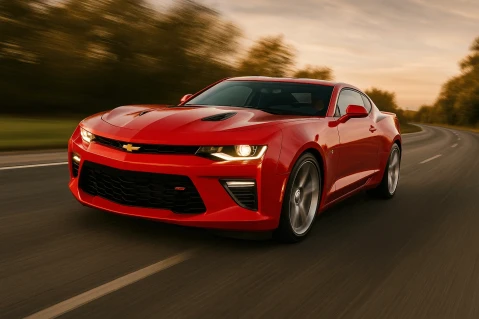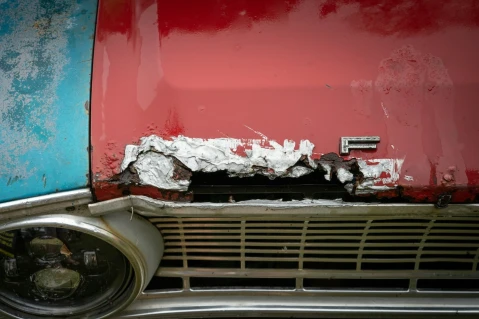If you have ever been confused by a salesman asking whether you want an additional car warranty on top of the factory one, there's no need to fret. The question of what an extended car warranty is and if it's worthwhile isn't unusual. When it comes to extended warranties, you don't have to get bogged down with the technicalities. You don't need to know a lot about an extended auto warranty to decide whether or not to get one.
What is an extended car warranty?
An extended warranty on a vehicle is an extension of the original manufacturer's warranty. Depending on the situation, it may be the same manufacturer warranty or a best new car warranty provided by a third-party supplier. So, an extended warranty is the way to go if you want the additional car warranty cover you received with the original powertrain and bumper-to-bumper guarantee. But what exactly do you get out of one? No, they're not the same thing at all. What's the secret to getting the best?
Although we don't want to tell you whether or not getting a used car warranty is a good or bad option, we have some suggestions that may assist you in making that decision. Instead, this post will assist you in understanding better the alternatives you'll get if you select longer-term coverage.
How does a car warranty work?
Let's start by saying that the phrase "extended warranty" is misleading since it isn't truly a warranty. It is a service agreement. Although original and extended warranties have some significant distinctions, they all guarantee to fix or replace a product if specific criteria are met. For this reason, it's a good idea to have a basic understanding of auto warranties in general.
When you buy an extended warranty, you're purchasing an insurance policy for your car. Repairs are covered for a certain number of days and kilometers. On the other hand, true warranties are part of the product's purchase price. Since they are offered separately, extended warranties are truly service contracts. Nonetheless, we will continue to refer to it as an "extended warranty" to prevent any misunderstanding. In the event of an unexpected repair, an extended warranty might save you money in the long run.
General auto warranties
Understanding the potential benefits of an extended warranty is helpful to understand what a general auto warranty entails. Automobile manufacturers and dealerships often exaggerate the relevance of warranties, but they don't clarify them. Many people are thus confused and misinformed about the scope of their protection. The concept of an automobile warranty seems to be straightforward on paper:
Warranties on automobiles are agreements in writing between you and the manufacturer or a third party to fix or replace any problems in the car you buy from them. An automobile warranty is in place to provide you, the client, with a sense of security. You have the means to have it repaired for newer vehicles if anything goes wrong. It is possible to bring the automobile to an authorized garage or dealership and have the problem rectified for free under basic manufacturing warranties. In addition to this, you can use the VIN check to understand what car problems require urgent repair.
Types of extended warranty
There are generally two providers of extended warranties – automobile manufacturers and third-party suppliers. Automobile manufacturers (usually known as original equipment manufacturers or OEMs) and third-party suppliers provide an aftermarket car warranty for their customers. Automobile manufacturers like Chevrolet, Ford, or Toyota would be considered OEM. A non-affiliated car warranty insurance provider qualifies as a third party.
Manufacturers' warranty agreements
When a car is brand new, the original equipment manufacturer (OEM) offers two types of warranties: powertrain and "bumper to bumper." The powertrain warranty's job is to protect both the engine and the gearbox against manufacturing flaws that might lead to malfunction. A bumper-to-bumper (also called "limited") warranty covers most of the vehicle's components, including the engine and transmission. Bumper-to-bumper warranties and main mechanical components likewise cover other electronics and navigation systems.
The duration of the warranty and the number of miles it covers are often increased with an extended warranty from the vehicle's Original Equipment Manufacturer (OEM). Roadside help is one of the optional extras that certain companies provide. In choosing a warranty, you may get the option of selecting a plan with or without a deductible. In the same way that raising your deductible on your vehicle insurance lowers your premium, you can do the same with your homeowners' insurance. However, deductibles for OEM extended car warranty costs are rarely more than $200, making it easier for consumers to afford them.
Warranties from third-party
Several aftermarket warranties and car warranty companies give the same coverage as those offered by the original equipment manufacturer (OEM). The limitations, conditions, and criteria of certain third-party warranties differ from OEM warranties. You may be limited in where you may have your car repaired under certain third-party warranties.
Furthermore, there is no assurance that the original components will be utilized in many cases. It's also important to note how the coverage is handled. Repairs covered by a third-party warranty may need upfront payment and submission of a claim for reimbursement. Getting your money back for insured things isn't always easy, and it might take weeks or even months.
However, if you're thinking about getting a warranty from a third party, be sure you understand the costs involved. Third-party warranties often cost less than those supplied by the original equipment manufacturer (OEM). Some situations may demand the use of a third-party warranty. For example, Ford OEM warranties are not likely to be available if you purchase a used Ford from a Hyundai dealership since the Hyundai dealership is not a Ford dealer.
If you're thinking about getting an extended warranty from a third party, be sure to review the warranty terms before committing to the purchase thoroughly.
Should I buy an extended warranty on a used car?
Here's what to consider before you buy:
- Does a manufacturer's warranty cover your vehicle?
- How long have you had your car under warranty already?
- Does the coverage align with how long you want to keep it?
Extending the factory warranty beyond the standard three years or 36,000 miles may not be worth the money if you only want to retain the car for two or three years and expect to drive roughly 10,000 miles a year during that time.
As a rule, the manufacturer's warranty will care for your problem. However, if you're buying a used car that's out of warranty or about to be out of warranty and plan to drive it until the wheels fall off, an extended warranty may make a lot of sense.
Do you know how long you'll be covered? For example, determine the start and end dates of the miles and time if you buy a seven-year, 100,000-mile warranty. Does the warranty begin when you take possession, buy a car, or when it was first sold new? Know what you're getting into before you sign anything.
What is included? What are the options? Make sure the warranty you're considering covers the components you're searching for if you're worried about a vehicle's electrical system or powerplant. You should study the inclusions and exclusions carefully before signing.
How much money do you have set aside for maintenance? You ought to consider scheduled maintenance, including oil changes, timing belt replacements, and tune-ups, which are often excluded from extended warranty coverage. Brake pads and windshield wipers are often excluded from extended warranties because they wear out.
Can you cancel a car warranty?
The warranty may be canceled at any time. Depending on the state, you may be able to terminate a warranty at any time. You'll get a prorated refund if you're approved. If this warranty is included in the deal, your loan's principal will decrease. Consequently, you'll have fewer payments to make in the long run. There will be no change in payment.
Additional tips
- Several endurance car warranty companies may refuse to pay for the repair if the owner can't verify that the automobile was maintained following specified recommendations.
- You don't have to acquire the warranty at the time of purchase. You're free to weigh your options and make a decision later. You may be able to include the cost of a warranty in your loan if you purchase the car and the warranty on the same day.
- It's important to know what kind of warranty you'll get when acquiring a used automobile from a dealership, so you can decide whether or not to buy it.
- The Federal Trade Commission expresses that you don't have to buy an extended warranty to secure a car loan. You should verify with your lender if your dealer tells you that you must purchase a service contract to get a loan, the Federal Trade Commission advises.
Endnote
Even if purchasing an extended warranty isn't a good idea for every automobile buyer, millions of people who have bought and used car warranties say they're happy they did. Take some time to study the small print on the contract before purchasing an extended warranty to ensure it covers what you want and doesn't include any unnecessary regulatory burden.







